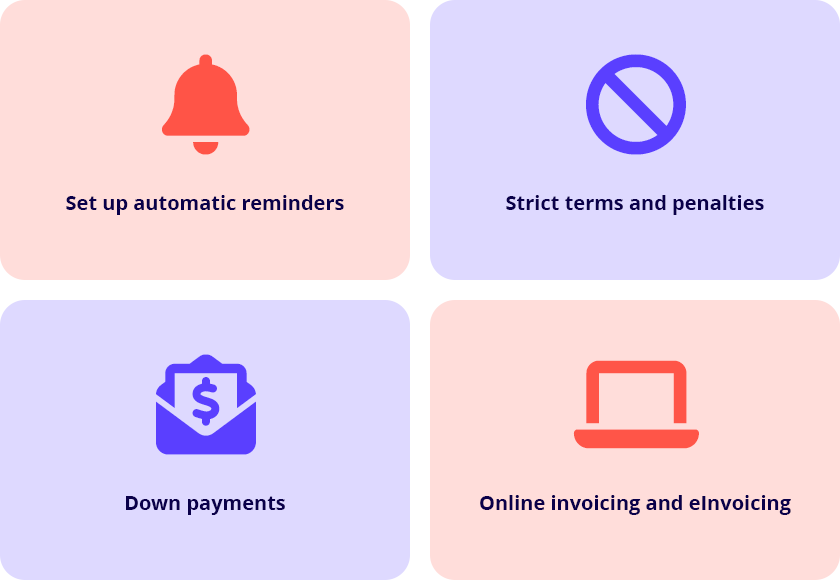As a business owner, you may find yourself asking, ‘what is accounts receivable’?
Simply, accounts receivable is the money that’s owed to your business by debtors. This debt is usually in the form of unpaid invoices. If you’ve issued invoices to debtors for work you’ve completed, yet haven’t received payment, you have accounts receivable.
Many business owners also ask: ‘is accounts receivable an asset?’ Yes, accounts receivable is considered an asset for accounting purposes, as you’re owed cash from the result of your business activity.
Let’s put the details of accounts receivable duties, how to report on it and how it impacts running a business under the microscope.
What is an accounts receivable ageing report?
What is an accounts receivable ageing report? It’s a document drawn up by a business to tabulate and classify accounts receivable.
By listing individual debtors who have outstanding debts such as unpaid invoices, alongside the related debt amount and the age of the debt, you have an important document on your hands.
Many accounts receivable ageing reports are split into columns such as ’30-60 days late’, ’60-90 days late’ and ‘90+ days late’.
In producing an accounts receivable ageing report, you can not only see which debts you should be collecting, but you also get a better idea of the business health of your debtors and who may be a repeat offender.
If your invoice payment terms contain penalties for late payments, your accounts receivable ageing report is also used to see, understand, and impose these penalties.
Why produce an accounts receivable ageing report?
- Cash flow – you can use this report to better understand the bottlenecks in your business’s cash flow and identify the sources of issues.
- Debt policy – if you find that you have persistent outstanding debts or repeat offending debtors who have added frequently to your accounts receivable, you can use this information to change your payment policy. You might now require down payments before work begins, shorten your payment terms or increase penalties for late payment.
- Estimating bad debt – you may also use this report to predict which debtor will never pay up and may need to be reported and written off as a bad debt later on. Since your accounts receivable is seen as an asset – you may need to understand how this asset is written off as a bad debt.
What are trade debtors?
The term ‘trade debtors’ is often bandied about. But what are trade debtors exactly?
Simply put, a trade debtor is the source of unpaid debt – the business or individual who has failed to pay an invoice and has added to your accounts receivable.
While accounts receivable refers to the debt itself, which is sitting on your books, the trade debtor is the entity, business or person who holds that debt and owes you money.
How can I get paid faster?
If you’ve experienced bad debts and long accounts receivable tables, you should be looking into methods that reduce accounts receivable and high numbers of trade debtors.

Automatic reminders
Firstly, turn to your cloud accounting software for automated reminders. By activating automated reminders, you can easily reduce your accounts receivable through regular prompts.
Many trade debtors aren’t necessarily avoiding payment due to a lack of funds or wilful avoidance. Sometimes they just need a reminder that they have an outstanding invoice.
Strict terms and penalties
Ensure you have very strict terms of payment, with clear penalties for late payments. The invoice which gets signed by your trade debtor should contain clearly outlined expectations of payment and what kinds of penalties are applicable in the case of late payments. For example, you may add 10% to the invoice if it’s over 60 or 90 days late.
Down payments
You can also lower your accounts receivable by requiring deposits or down payments before you commence work. By collecting a portion of the debt upfront, you have already lowered the debt on your books and will improve cash flow while reducing risk.
Online invoicing
If you’re still issuing paper invoices through mail or email, you might want to reconsider. By using accounting software to create and email invoices, you make the payment process simple, instant and low friction. If a debtor can click a link and enter credit card details, online, you have a much better chance of prompt payment due to the ease of the process.
eInvoicing
eInvoicing is the automatic exchange of digital invoicing data between a buyer’s and supplier’s accounting systems. It is the easiest and most accurate way to send and receive invoices between businesses. Using accounting software to create an eInvoice not only simplifies the payment process, but also makes it more secure, and eliminates the need for paper and emailing PDFs. As part of the government’s Digital Business Plan, electronic invoicing (or eInvoicing) is mandatory for all government departments as of 1 July 2022.

